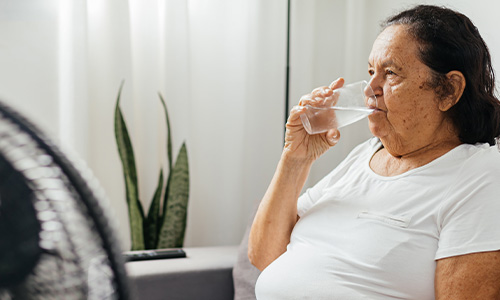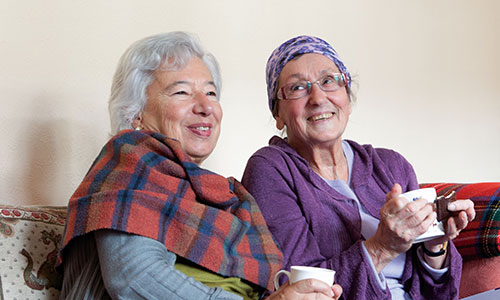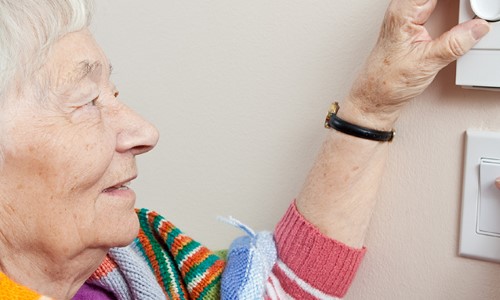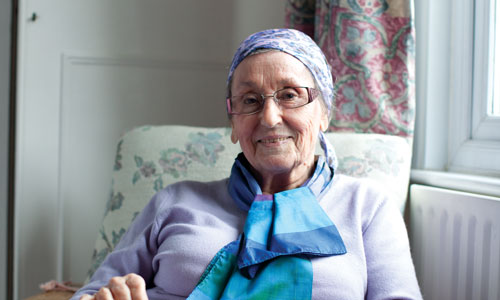
Keep cool and be sun-safe
The hot weather can have its downsides when it comes to health, so make sure you stay safe this summer with these tips.

The hot weather can have its downsides when it comes to health, so make sure you stay safe this summer with these tips.
Many of us look forward to some sunshine, but as we get older, we need to take extra care when temperatures rise. Generally, our bodies find it harder to adapt to more extreme temperatures as we age and extreme heat can make certain medical issues worse, particularly conditions affecting the heart or lungs.
As the weather gets hotter, it’s a good idea to take simple precautions to ensure they are looking after themselves as temperatures rise.
Check on older neighbours or relatives who live alone and are living with health issues – Especially if they are at higher risk of becoming unwell in extreme temperatures.
Stay inside during the hottest time of the day, 11am to 3pm – If you do go out, use sunscreen of factor 30 or above, wear a hat and keep in the shade when possible.
When inside, try to keep your home cool – Keep curtains and blinds closed in rooms that catch the sun, and shut windows during the day to keep hot air out and cooler air in. Open windows in the evening when the temperature has gone down. Identify the coolest room in the house so you know where to go to keep cool.
Have cool baths or showers, or splash yourself with cool water throughout the day – Sprinkling clothes with water regularly, splashing cool water on your face and a damp cloth on the back of the neck helps keep your temperature regulated.
Change the timings of activities – If you have a walk that you like to take, make sure you do this at a different time of the day such as in the early morning or evening, when it’s cooler. Also limit or avoid activities like housework and gardening when it’s particularly hot.
Stay hydrated – Drink lots of water throughout the day, even if you aren’t thirsty. Limit alcoholic drinks as these can increase the risk of dehydration.
Eat normally but try to have more cold foods – Particularly salads and fruits as they contain a lot of water.
Choose the right clothes – It may sound obvious, but light-coloured, loose cotton clothing can help you stay cool in the heat. Dark colours absorb the light and can make you feel even warmer.
Check for weather forecasts and temperature warnings – On TV, radio, and online at www.metoffice.gov.uk
Know the symptoms of heat exhaustion and heatstroke – And what to do if you or someone else has them.
The UKHSA, in collaboration with the Met Office, provides a Weather-Health Alerting (WHA) system, which issues Heat-Health Alerts (HHA). These alerts raise awareness of periods of high temperatures that could impact the health of the population.
The core period for these alerts begins on 1 June and ends on 30 September. Within this core alerting period, a Heat-Health Planner is also issued every Monday and Friday to provide Heat-Health horizon scanning for the next 5 days, 6 to 15 days, and 16 to 30 days ahead. Individuals and organisations that wish to receive and cascade these alerts, can sign up and register to receive the alerts.
Download our guide to find out how to stay cool and keep well this summer. This guide covers everything from staying sun-safe when you're out and about to spotting signs of dehydration and heat exhaustion.

Discussing record-breaking temperatures and why it's vital older peoples' voices are heard on climate change.

We share nine practical tips to older people keep financial woes at bay during the winter months.

Age UK and Friends of the Earth share 8 practical ways we can reduce our carbon footprint.

As the cold weather bites, Age UK is expecting more older people in to need support. You can help us be there.